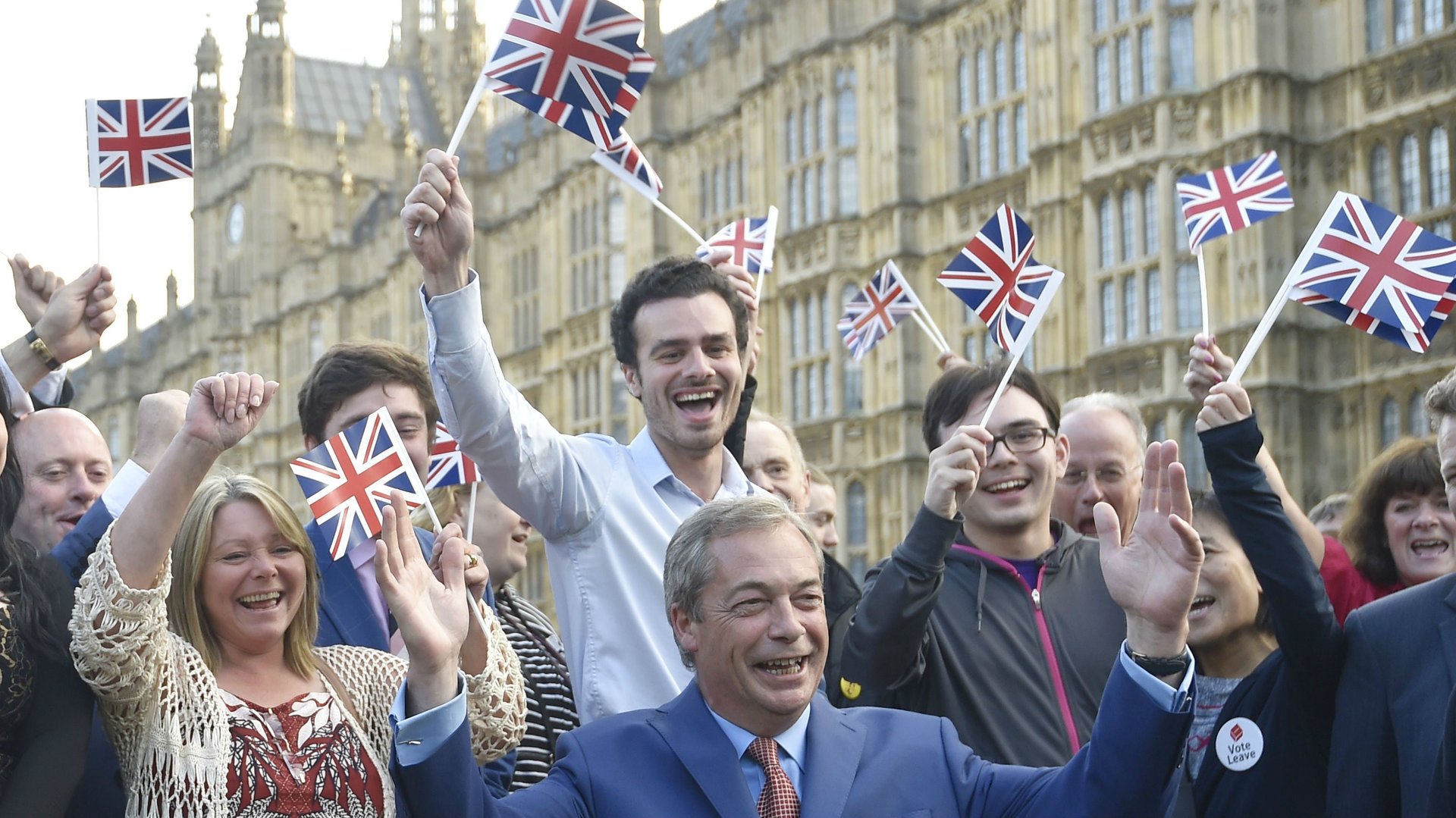Some arguments for optimism in a post-Brexit world
In the wake of Thursday’s Brexit vote, it was impossible to ignore the pervasive despair. Markets plummeted as negative predictions emerged for everything from research and the environment to air travel and luxury goods. It’s hard to smile about general global instability.


In the wake of Thursday’s Brexit vote, it was impossible to ignore the pervasive despair. Markets plummeted as negative predictions emerged for everything from research and the environment to air travel and luxury goods. It’s hard to smile about general global instability.
But there have been some compelling pleas for optimism in the days since the UK voted to leave the European Union. Free from its obligations to the EU—no more missions to East Africa or the Balkans—the UK’s military can now give more attention to NATO’s plight against Vladimir Putin (paywall), Foreign Policy argues. That transfer of power from the EU to NATO might also help resolve some the two organizations’ longstanding enmity.
The Independent suggests that the UK’s world-class universities will continue to be a leader in global higher education, and that some foreign students may find the visa process even easier to navigate now, which will in turn attract more foreign students.
The Financial Times points out (paywall) that Brexit gives the UK an opportunity to return to a more democratic country with a stronger national agenda, and is an understandable byproduct of the British balancing act between globalization and sovereignty.
Of course, these arguments all come with baggage. The UK would only consider buddying up to NATO because it’ll need a friend after giving itself an economic demotion. Maintaining leadership in higher education depends on the British government’s willingness to cover the $1.4 billion that the country’s universities are losing by leaving the EU. And the FT’s argument rests on the idea that we actually don’t know what happens next, sidestepping the negative outcomes that are already upon us.
All this ambivalence will be hard to address head-on until the next steps in the Brexit process start to take shape. Or the UK can decide there aren’t enough silver linings and reverse its decision—but only if it really, really wants to.